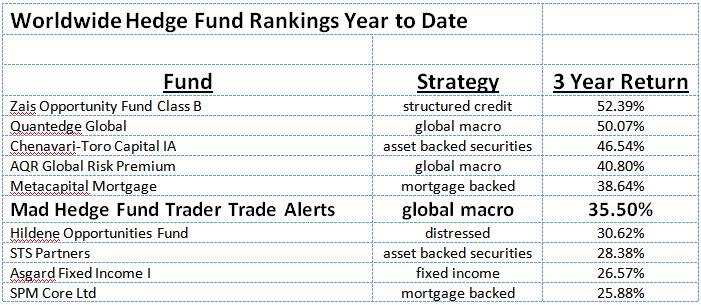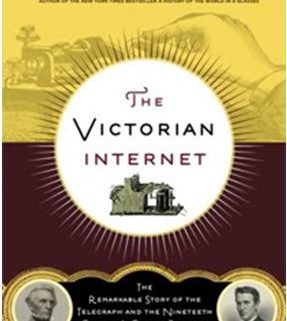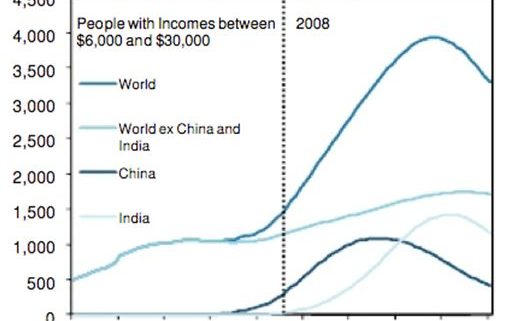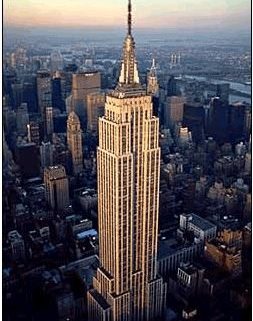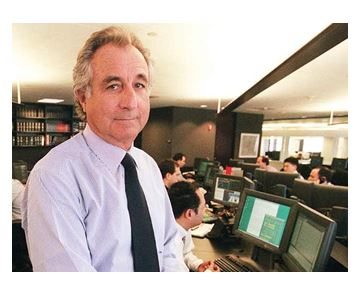The Trade Alert service of the Mad Hedge Fund Trader ranked as the sixth top-performing hedge fund in the world, according to statistics compiled by Barron's. The Dow Jones subsidiary tallied results of the top 100 funds from a potential global universe of over 10,000. It then ranked results according to their three-year compound annual returns.
The Red Bank, New Jersey based Zais Opportunity Fund Class B came in at number one, with an eye popping 52.39% return? (https://www.zaisgroup.com/about.aspx ). They were followed by Quantedge Global in New York (http://www.quantedge.com/about/overview.php).
I peruse the list when it comes out every quarter to see how my friends in the industry are doing, and to study which strategies are delivering the winning numbers. No surprise that bond managers dominated the ranks, as we are just winding up a 60-year bull market in that once sought after asset class. However, investors in the four funds that employed bond strategies are about to get a rude wake up call, as May was the worst month in that market in many years.
Funds that employed a global macro approach, as I do, were catapulted to the top by correctly betting on Japan. This has been one of the toughest strategies to execute in recent years, as the massive liquidity provided by the Federal Reserve so grievously separates international assets from their fundamentals. Many such funds have been getting killed by their short positions in equities this year. Two funds in the Barron's table executed specialized niche strategies in asset-backed strategies, while one focused on distressed securities.
As of last week, the Trade Alert Service of the Mad Hedge Fund Trader boasted an enviable averaged annualized return of 35.50%. My own biggest earnings of the year have been in short yen, short gold, and long US equities. Followers have been laughing all the way to the bank (click here for the link to the testimonials).
Global Trading Dispatch, my highly innovative and successful trade-mentoring program, earned a net return for readers of 40.17% in 2011 and 14.87% in 2012. The service includes my Trade Alert Service, daily newsletter, real-time trading portfolio, an enormous trading idea database, and live biweekly strategy webinars. To subscribe, please go to my website at http://madhedgefundradio.com, find the "Global Trading Dispatch" box on the right, and click on the lime green "SUBSCRIBE NOW" button.

